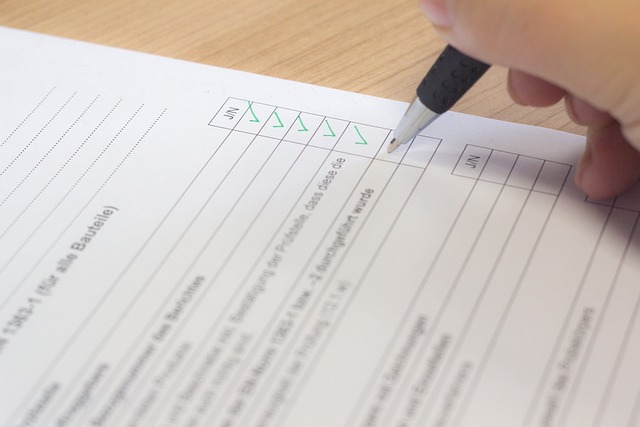SOPs are outlined, detailed directions for finishing jobs that occur routinely in your practice. Creating law office SOPs might appear discouraging in the beginning, but it’s an uncomplicated process that repays significantly over time.
We frequently say if you don’t have a procedure for anything you do greater than when in your practice, you’re wasting time and leaving money on the table.
Without written procedures, even a routine job can take longer than it should, particularly if it’s something you don’t do commonly. You’ll waste time attempting to bear in mind what you did, and you run the risk of making blunders and missing out on steps. But the biggest downside? You won’t have the ability to delegate the work swiftly and effectively.
Effectiveness and consistency are important if you wish to deliver premium lawful solutions, give an exceptional client experience, and keep your productivity. Having a thorough library of standard operating procedures (SOPs) will ensure everybody on your team recognizes specifically how to execute these tasks properly and effectively.
How to Develop an SOP in Five Steps
Begin by choosing a job that you or your group do regularly. This could be anything from customer consumption to record preparing to payment procedures. We advise beginning with a business or administrative process that lies in the bookends of your method– that is, a process that occurs before the lawful work begins (like consumption) or that occurs when the legal work is over (like invoicing).
Once you have actually picked the procedure or task, below’s the process we suggest for creating your SOPs:
1. Track what you actually do
The next time you complete the task, document each action you do as you accompany. Think about the various situations that could develop and exactly how you typically manage them. The idea is to record what you actually do, as you do it.
2. File the resources you make use of
Include the certain devices, resources or layouts you make use of at each action. Supply any type of pertinent links, names and contact numbers– or any other sources that can aid.
3. Evaluate the SOP
Once you have your draft, test it out. The following time you do the job, follow your draft SOP on your own. If you can follow it to the t and obtain the appropriate result, wonderful. If not, modify it. After that, have somebody unfamiliar with the task follow your draft SOP to see if they can finish it without requiring extra guidelines. This screening action is essential for identifying gaps or unclear directions.
4. Tweak your SOP
Based upon the comments, improve your SOP. You wish to make sure it’s clear and full so that whoever follows it can attain the appropriate outcome without coming back to you with inquiries. Make any required adjustments before you carry on to the next step.
5. Educate your delegatees
If the work is mosting likely to be passed on to others, the following step is to instruct the procedure to whoever is going to do the operate in your stead. Your SOP ought to be rather self-explanatory, but it deserves investing a couple of even more mins to ensure that what appears clear and apparent to you is clear and evident to the people that are utilizing it. Not just do you want them to be able to accomplish the ideal result, however you likewise desire them to recognize the significance of following the SOP to preserve consistency and high quality in their job.
Evaluation and Update On A Regular Basis
SOPs are not static records. As your technique develops, so will the treatments. Regularly testimonial and upgrade your SOPs to mirror any kind of changes in processes, modern technology or guidelines.
Why SOPs Matter
Having a properly maintained library of SOPs is more than simply a nice-to-have. It’s vital for the success and development of your law practice. Here’s why:
- Uniformity and quality. SOPs ensure that jobs are done constantly throughout your company, decreasing the threat of mistakes and maintaining your high requirements of top quality.
- Effectiveness. Clear, well-documented treatments save time by getting rid of the uncertainty. Your group can complete tasks quicker and with better self-confidence, liberating time for more facility, high-value work.
- Training and onboarding. SOPs are indispensable for educating brand-new employee. They offer a clear roadmap for exactly how things have to be done, decreasing the finding out contour and aiding brand-new hires come to be efficient more quickly.
- Scalability. As your firm grows, having standard treatments in place makes it less complicated to scale procedures. You can pass on jobs more effectively and make sure that even as your group broadens, the high quality of your services stays regular.
- Risk management. Well-documented SOPs assist reduce danger by making sure that every person follows the correct procedures, particularly in high-stakes or lawfully sensitive locations of your technique.
Make Sure to Involve the entire Team
By developing a library of well-documented procedures, you’ll set yourself and your practice up for lasting success. Yet you do not need to create them all on your own! Structure and preserving your SOPs will absolutely call for an ahead of time investment of time and initiative, but it can be shared. Urge your group to follow this very same process to develop SOPs for their own jobs and make keeping them everybody’s responsibility.
Keep in mind, if your “procedure” is simply in your head– or the head of another person who works for you– you do not have a process. You can not cover when individuals are away or when they leave. You can not hand over to even more cost-efficient sources. And you can’t quickly broaden your group.

